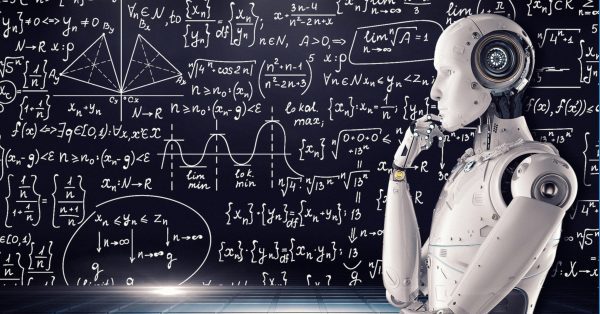
AI and the Future of Education
Education is undergoing a transformation, and Artificial Intelligence (AI) is playing a leading role in this evolution. Imagine classrooms where AI tutors cater to individual student needs, educational content adapts to learning styles, and assessments become more personalized and insightful. This is not a futuristic fantasy; it’s the potential future of education powered by AI.
AI-Powered Personalization: Unlocking Potential
1. Tailored Learning Paths: AI can analyze student performance data to identify strengths and weaknesses. Learning paths can then be personalized, offering targeted exercises and resources to maximize each student’s potential.
2. Adaptive Learning Platforms: AI-powered platforms can adjust the difficulty of learning materials, suggest relevant resources, and identify areas where a student might need extra support. This dynamic approach caters to individual learning paces and styles.
3. Intelligent Virtual Tutors: Imagine virtual tutors that can answer student questions, provide feedback, and offer personalized guidance. AI-powered tutors can offer additional support outside of class hours, filling in knowledge gaps and reinforcing concepts.
Beyond the Classroom: AI’s Broader Impact
1. Automated Grading and Feedback: AI can streamline the grading process, freeing up educators’ time for more interactive learning experiences. Additionally, AI-generated feedback can be more detailed and personalized, providing students with actionable insights to improve their work.
2. Language Learning Revolution: AI chatbots can simulate real-world conversations, allowing students to practice their language skills in a safe and engaging environment. AI can also personalize language learning based on a student’s native tongue and learning goals.
3. Accessibility and Inclusivity: AI tools like text-to-speech and speech-to-text can create a more inclusive learning environment for students with disabilities. AI can also be used to translate learning materials, making education more accessible to a wider range of learners.
The Human Touch Remains Vital: AI as a Partner, Not a Replacement
While AI offers exciting possibilities for education, it’s important to remember that it’s a tool, not a replacement for human educators. Teachers will continue to play a crucial role in fostering critical thinking skills, inspiring curiosity, and providing social and emotional support to students. AI can empower educators by freeing them from routine tasks and allowing them to focus on more individualized instruction and student interaction.
The Future of Education: A Collaborative Journey
The integration of AI into education is still in its early stages, but the potential benefits are undeniable. By harnessing the power of AI while fostering collaboration between humans and machines, we can create a future of education that is personalized, engaging, and accessible to all.
What are your thoughts on the role of AI in education? Do you see AI as a valuable tool or a potential threat? Share your thoughts and predictions in the comments below! Let’s discuss the future of education together!
AI in Education FAQs: Charting the Course for a Smarter Future
Q: Personalized learning sounds great, but can AI truly understand individual students?
A: AI analyzes data to tailor learning. While it might not possess a human teacher’s intuition, AI can personalize content and identify areas where students need help.
Q: AI tutors sound like something out of science fiction! Will they replace teachers?
A! AI tutors can offer supplemental support, but they won’t replace teachers. Educators will remain vital for inspiration, social interaction, and fostering critical thinking skills.
Q: Automated grading? Does that mean less human interaction with my work?
A: AI can streamline grading, but it shouldn’t replace thoughtful feedback. AI-generated insights can be a starting point for richer discussions between students and teachers.
Q: Can AI help me learn a new language more effectively?
A! AI chatbots can simulate conversations and personalize learning based on your native language. AI offers a dynamic and engaging way to practice language skills.
Q: AI for a more inclusive classroom? How can it help students with disabilities?
A! AI tools like text-to-speech and vice versa can create a more inclusive learning environment. AI can also translate materials, making education accessible to a wider range of learners.
Q: The future of education sounds exciting, but what about potential risks?
A! It’s crucial to ensure responsible AI development in education. Bias in AI algorithms needs to be addressed, and human oversight remains vital.
Q: Let’s talk about the future of learning!
A! Share your thoughts on AI in education! Is it an opportunity or a challenge? What are your hopes for the future of learning? Join the discussion in the comments below! Let’s shape the future of education together.

Leave a Reply